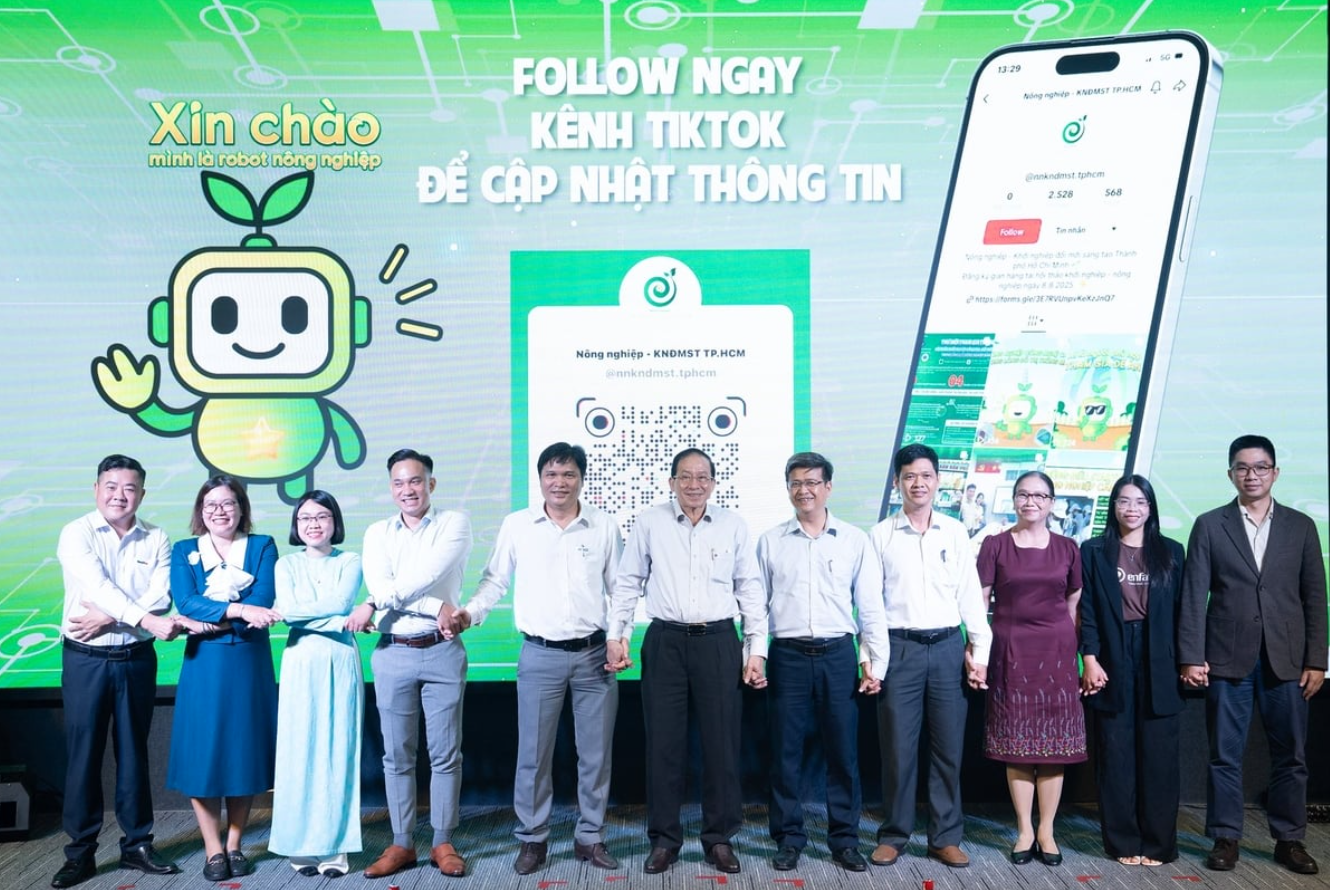On August 29, the Center for Agricultural Economic Restructuring Consultancy and Support (under the Ho Chi Minh City Department of Industry and Trade), in collaboration with Ho Chi Minh City University of Industry and Trade, hosted the 2025 seminar “Innovation with Agriculture.”
The event is part of the city’s scheme “Supporting Agricultural Startups and Innovation for the 2025–2030 Period,” issued under Decision No. 3561/QĐ-UBND by the municipal People’s Committee. The program aims to create momentum for building a sustainable agricultural startup ecosystem aligned with the city’s economic development strategy.
As Ho Chi Minh City enters a strategic phase to maintain its role as the nation’s economic hub and expand its regional influence, innovation is increasingly seen as vital. Alongside its International Financial Center project, the city’s startup and innovation ecosystem has made significant progress. According to StartupBlink’s 2025 global rankings, HCMC has, for the first time, joined the group of leading startup ecosystems in Southeast Asia, ranked 110th worldwide—the city’s highest position to date.
 As part of the event, the Center for Agricultural Economic Restructuring Consultancy and Support (ACSC) launched the media channel “HCMC Agricultural Startups and Innovation” on the TikTok platform. Photo: ACSC.
As part of the event, the Center for Agricultural Economic Restructuring Consultancy and Support (ACSC) launched the media channel “HCMC Agricultural Startups and Innovation” on the TikTok platform. Photo: ACSC.Notably, it ranks second in the region for fintech and in the global top 30 for blockchain, underscoring its potential to become a regional digital financial technology hub. In this context, agriculture has been identified as a sector that must not stand apart from the innovation trend.
Speaking at the seminar, Nguyen Nguyen Phuong, Deputy Director of the HCMC Department of Industry and Trade, emphasized that the event comes as the city pursues its ambition of becoming a “global mega-city,” requiring bold thinking and action across all sectors, including agriculture. He noted that under the department’s management, the 2025–2030 support scheme for agricultural startups will adopt new priorities, focusing on the city’s comparative strengths—particularly within agricultural value chains.
The department has identified four major priorities: Developing the processing industry to transform raw farm produce into premium, high-value products; Expanding trade promotion and distribution channels both domestically and internationally; Strengthening logistics and cold chain supply systems to minimize losses and preserve product quality; Building strong brands so that every product carries a story, national pride, and credibility.
As part of the seminar, the Center launched the TikTok-based media channel “HCMC Agricultural Startups and Innovation” to strengthen connections between farmers, businesses, and consumers. The Center also signed cooperation agreements with the Netherlands-based Vietnam SKU organization and the Innovative Startup Investment Fund (ITI Fund) to mobilize additional domestic and international resources.
Deputy Director Phuong expressed confidence that with the intellect and ambition of the business community, coupled with strong political support, Ho Chi Minh City’s agricultural startup and innovation ecosystem will achieve breakthrough growth. This, he said, will contribute to realizing the vision of building the city into a leading regional hub for economy, technology, and innovation.
The seminar also gathered scientists, experts, investors, support funds, enterprises, and startups from Vietnam and abroad to share experiences, exchange knowledge, and seek new solutions. It is expected to serve as an important platform for promoting products, expanding cooperation, and accelerating the application of high technology and artificial intelligence in agricultural production.